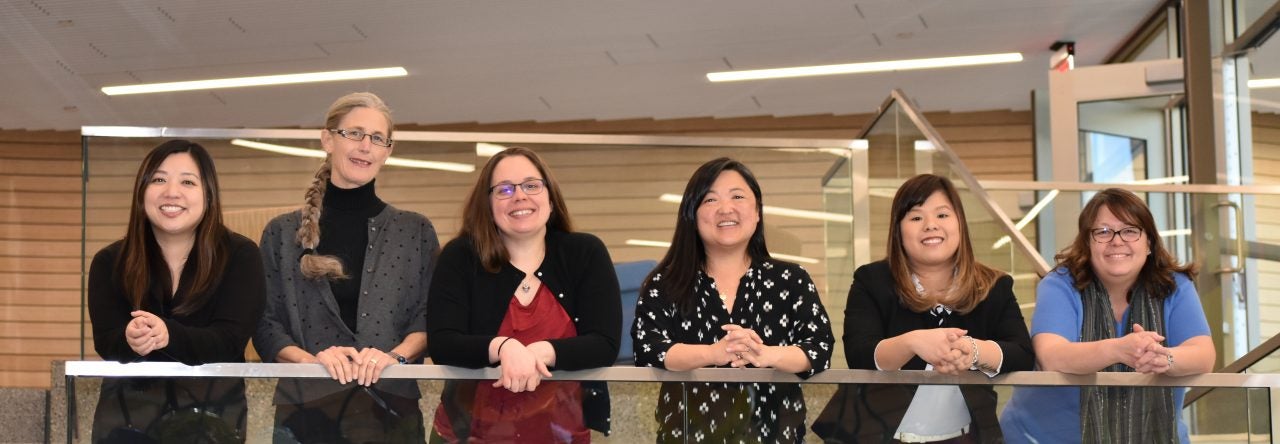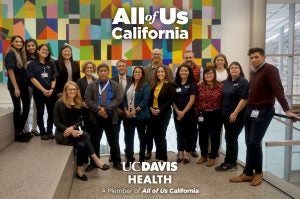Current
New patient-centered visualization methods for predictive learning algorithms: a pilot study in heart failure decision support
This project aims to develop patient-centered, uncertainty-aware visualization methods for displaying predictions in context to uncover early warning signs and communicating decision support insights for both clinicians and patients.
Funded by: CITRIS (https://citris-uc.org/announcing-the-2019-citris-seed-funding-awards/)
Participating team members: Kathy, Yong, and Kwan-Liu Ma (UC Davis, Computer Science)
Massive Individualized N-of-1 Experiments (MINEs) using HackYourHealth: A New Paradigm for Promoting Health and Well Being
Funded by: UC Davis Clinical Translational Sciences Center
Participating team members: Kathy, Sayantani, Richard Kravitz (PI, UC Davis School of Medicine), Ida Sim (UC San Francisco); Eric Hekler and Sayali Phatek (UC San Diego), Stephen Schuller (UC Irvine), and Christopher Schmid (Brown University)
Design Thinking Studies in Uncommon Cancers
Funded by: Amgen
Participating team members: Educational Needs for Immunotherapy in Acute Lymphoblastic Leukemia: Kathy, Nilpa, Yong, Victoria, Susan Verba (UC Davis Department of Design) and Brian Jonas (UC Davis Comprehensive Cancer Center) Shared Decision Making in Multiple Myeloma: Kathy, Nilpa, Anne White (UC Davis), Robin Whitney (UC San Francisco-Fresno), Aaron Rosenberg (UC Davis Comprehensive Cancer Center), and Richard Kravitz (UC Davis School of Medicine)
In two projects, we partner with Amgen to understand the experience and challenges faced by patients, family members, and clinicians as they make treatment decisions in order to design education and experiences that meet their health needs. Read more
KIDCARE
Funded by: Patient Center Outcomes Research (PCORI)
Participating team members: Kathy, Jacque, and Jane Burns (PI, UC San Diego)
KIDCARE is a Phase III, multi-center, comparative effectiveness study for IVIG- resistant Kawasaki disease (KD). Kawasaki disease is a rare, pediatric, disease that is the most common cause of acquired heart disease in children. Most of the population diagnosed with KD responds well to the standardized treatment of IVIG. However, 10-20% of KD patients are resistant to the standardized treatment of IVIG, and end up needing further treatment. The goal of this study is to determine which drug, infliximab or a second IVIG infusion will stop fever faster and is associated with fewer side effects. This study was co-designed by patients, parents, clinicians, and researchers. The analysis will encompass both effectiveness of the treatments and trajectories of the symptoms and side effects from the treatment. Read more
All of Us, California Precision Medicine Consortium
Funded by: NIH Precision Medicine Initiative
Participating team members: Kathy, Jacque, Corey, and Alexander Borowsky (Co-PI, UC Davis School of Medicine)
The California Precision Medicine Consortium (CaPMC) network is part of the national All of Us Precision Medicine Research Program which aims to enroll 1 million people. This national study will provide researchers and scientists access to biospecimens, genetic data, medical records, and person-generated health data to advance precision medicine. CaPMC includes UC San Diego, UC Irvine, UC Davis, UC San Francisco, USC, and Cedars Sinai. The team leads the participant engagement for CaPMC by managing advisory board meetings, community initiatives, and continuous improvement of recruitment and engagement. Read more
pSCANNER: Patient-Centered SCAlable National Network for Effectiveness Research
Funded by: Patient Centered Outcomes Research Institute (PCORI) and Agency for Health Research and Quality (AHRQ)
Participating team members: Kathy, Kate, Victoria, Thuy, and Lucila Ohno-Machado (PI, UC San Diego)
Since 2010, the team coordinates the Patient-Centered Scalable National Network for Effectiveness Research (pSCANNER), a network of health systems that use new technology to share data for research. The pSCANNER network represents more than 30 million patients, allowing researchers to conduct large-scale studies more quickly and effectively. pSCANNER is one of 33 networks across the country that were built as part of a national initiative called the Patient-Centered Outcomes Research Network (PCORnet). The goal of PCORnet is to allow researchers to do patient-centered outcomes research (PCOR) and comparative effectiveness research (CER). Currently, the pSCANNER includes 14 health systems including the University of California (UC Davis, UC Irvine, UC Los Angeles, UC San Diego, and UC San Francisco), national Veteran’s Administration Health System, USC, and others.
Heart Failure Signals
Funded by: NIH Big Data to Knowledge Program (BD2K)
Participating team members: Kathy, Cindi, and Rayid Ghani (University of Chicago)
A machine learning approach to predicting readmissions from heart failure and uncovering early warning signs of exascerbation using dynamic telemonitoring, patient-reported, hospital, and demographic data streams.
Recent
On Point
Funded by: National Institute of Biomedical Imaging and Bioengineering via BU Center for the Future of Cancer Care, CITRIS
Participating team members: Kathy, Kate, Thuy, Sarah Haynes (UC Davis Epidemiology) and Bjoern Hartmann (UC Berkeley)
Through several phases of research, we developed “On Point,” a mobile system to optimize healthcare services and promote shared decision making. The team investigated use of this application with people with cancer, heart disease, and multiple chronic conditions. Individuals with these conditions must make many health decisions regarding their treatment options with few resources supporting care management needs. The team developed a mobile platform, produced guidelines for interfacing between the On Point system and electronic health records, and assessed the viability of precision clinic visits. The On Point system provides care coordination functions, medication reconciliation tools, symptom assessments, patients and caregiver communication with their clinical teams, and care profiles.
Personal Health Network for Chemotherapy Care Coordination
Funded by: National Institute of Biomedical Imaging and Bioengineering via BU Center for the Future of Cancer Care, McKesson Foundation, UC Davis Practice Management Board Innovation Grant
Participating team members: Kathy, Victoria, Thuy, Janice Bell (UC Davis), Jill Joseph (UC Davis) and Richard Bold (UC Davis School of Medicine)
In a number of related projects, we co-developed a social/mobile application for care coordination during active chemotherapy treatment and studied the health impacts, technology acceptance and use, and user-centered design.
Health Coaching Accelerator
Funded by: Merced County Workforce Board, Golden Valley Health Centers/California Endowment and Livingston Community Health/California Workforce Accelerator grant
Participating team members: Kathy and Victoria
The team developed an interactive curriculum for training health coaches and integrating health coaching into a primary care team. This program has successfully trained medical assistants and nurses in numerous community health centers in the agricultural Central Valley of California. This training also enhances career development opportunities through skill development for medical assistants and other health workers.
Community Care Navigators for Faith-based Advanced Illness Care
Funded by: Allen Temple Foundation/The San Francisco Foundation
Participating team members: Kathy,Victoria and Cynthia Carter-Perrilliat (PI, Allen Temple)
The team assisted in the implementation of a faith-based community care navigator program and advanced care model for frail elders in partnership with the Alameda County Care Association and their hub churches.
Enhancing Tribal Health and Food Security in the Klamath Basin of Oregon and California by Building a Sustainable Regional Food System
Funded by: USDA
Participating team members: Kathy, Victoria, Grant Gilkison and Lisa Hillman (Karuk Tribe) and Jennifer Sowerwine (PI, UC Berkeley)
The integrated multi-state and multi-institutional research, extension and education program seeks to achieve a sustainable food system in the Klamath Basin among the Klamath, Karuk, and Yurok Tribes. The team collaborated with the Karuk Tribe youth leaders to increase capacity for leadership among youth, and to implement a youth-led community food and health assessment using mobile technology. Read more

